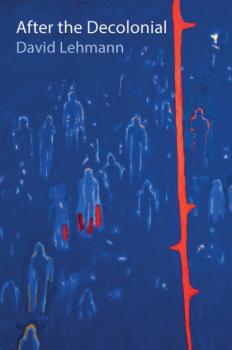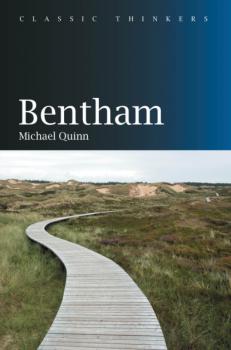John Wiley & Sons Limited
Все книги издательства John Wiley & Sons LimitedAfter the Decolonial
After the Decolonial examines the sources of Latin American decolonial thought, its reading of precursors like Fanon and Levinas and its historical interpretations. In extended treatments of the anthropology of ethnicity, law and religion and of the region’s modern culture, Lehmann sets out the bases of a more grounded interpretation, drawing inspiration from Mexico, Brazil, Bolivia and Chile, and from a lifelong engagement with issues of development, religion and race. The decolonial places race at the centre of its interpretation of injustice and, together with the multiple other exclusions dividing Latin American societies, traces it to European colonialism. But it has not fully absorbed the uniquely unsettling nature of Latin American race relations, which perpetuate prejudice and inequality, yet are marked by métissage , pervasive borrowing and mimesis. Moreover, it has not integrated its own disruptive feminist branch, and it has taken little interest in either the interwoven history of indigenous religion and hegemonic Catholicism or the evangelical tsunami which has upended so many assumptions about the region’s culture. The book concludes that in Latin America, where inequality and violence are more severe than anywhere else, and where COVID-19 has revealed the deplorable state of the institutions charged with ensuring the basic requirements of life, the time has come to instate a universalist concept of social justice, encompassing a comprehensive approach to race, gender, class and human rights.
The Behavior of Animals
The Behavior of Animals An updated view of animal behavior studies, featuring global experts The Behavior of Animals, Second Edition provides a broad overview of the current state of animal behavior studies with contributions from international experts. This edition includes new chapters on hormones and behavior, individuality, and human evolution. All chapters have been thoroughly revised and updated, and are supported by color illustrations, informative callouts, and accessible presentation of technical information. Provides an introduction to the study of animal behavior Looks at an extensive scope of topics- from perception, motivation and emotion, biological rhythms, and animal learning to animal cognition, communication, mate choice, and individuality. Explores the evolution of animal behavior including a critical evaluation of the assumption that human beings can be studied as if they were any other animal species. Students will benefit from an updated textbook in which a variety of contributors provide their expertise and global perspective in specialized areas
Bentham
Jeremy Bentham – philosopher, theorist of law and of the art of government – was among the most influential figures of the early nineteenth century, and the approach he pioneered – utilitarianism – remains central to the modern world. In this new introduction to his ideas, Michael Quinn shows how Bentham sought to be an engineer or architect of choices and to illuminate the methods of influencing human conduct to good ends, by focusing on how people react to the various physical, legal, institutional, normative and cultural factors that confront them as decision-makers. Quinn examines how Bentham adopted utility as the critical standard for the development and evaluation of government and public policy, and explains how he sought to apply this principle to a range of areas, from penal law to democratic reform, before concluding with an assessment of his contemporary relevance. He argues that Bentham simultaneously sought both to facilitate the implementation of governmental will and to expose misrule by rendering all exercises of public power transparent to the public on whose behalf it was exercised. This book will be essential reading for any student or scholar of Bentham, as well as those interested in the history of political thought, philosophy, politics, ethics and utilitarianism.
Reservoir Characterization
This second volume in the series, “Sustainable Energy Engineering,” covers reservoir characterization, a huge part of the production process and crucial to the power generation supply chain. Long though of as not being “sustainable,” newly discovered sources of petroleum and newly developed methods for petroleum extraction have made it clear that not only can the petroleum industry march toward sustainability, but it can be made “greener” and more environmentally friendly. Sustainable energy engineering is where the technical, economic, and environmental aspects of energy production intersect and affect each other. This collection of papers covers the strategic and economic implications of methods used to characterize petroleum reservoirs. Born out of the journal by the same name, formerly published by Scrivener Publishing, most of the articles in this volume have been updated, and there are some new additions, as well, to keep the engineer abreast of any updates and new methods in the industry. Truly a snapshot of the state-of-the-art, this groundbreaking volume is a must-have for any petroleum engineer working in the field, environmental engineers, petroleum engineering students, and any other engineer or scientist working with reservoirs.









